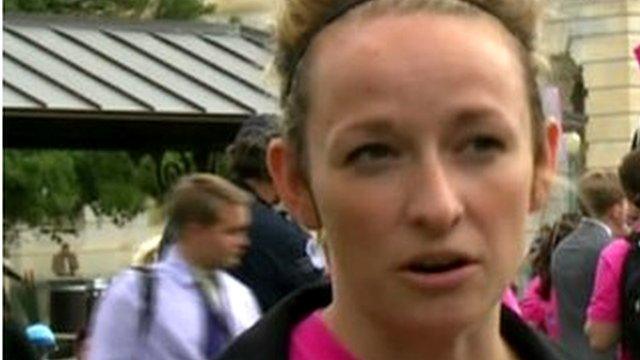US Supreme Court hears landmark abortion case
- Published
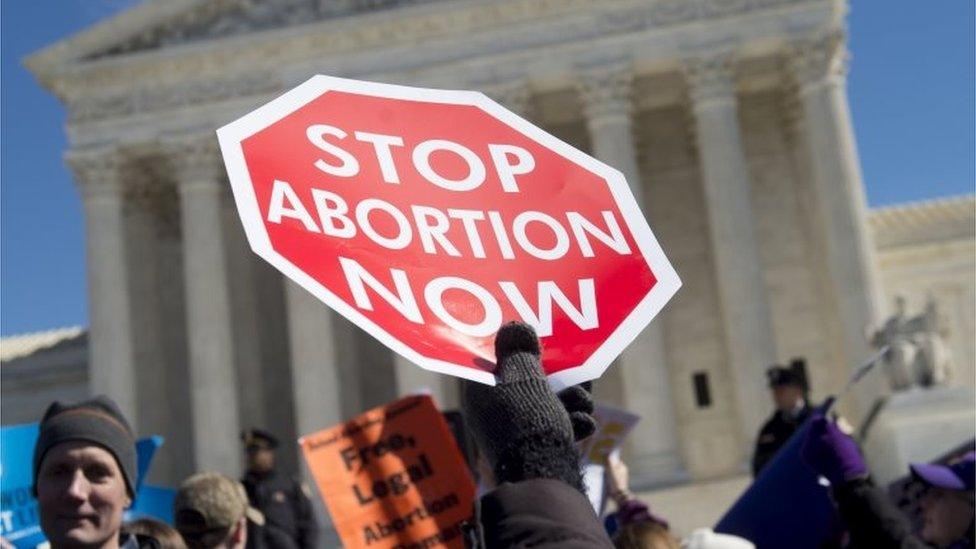
Hundreds of pro- and anti-abortion activists rallied outside the Supreme Court on Wednesday
The US Supreme Court has heard arguments in a controversial abortion case that may have implications for millions of women across the country.
It considered a challenge to a Texas law that imposes strict regulations on abortion doctors and clinics.
But the court's eight justices so far appear divided on the hot button issue.
It is the court's first major abortion case in decades and the first big case since its most conservative justice, Antonin Scalia, died in February.
His death leaves the court evenly split between liberals and conservatives, with all eyes on Justice Anthony Kennedy who holds a swing vote on the highly charged issue.
Hundreds of activists - both in support and in opposition to abortion - camped outside the court on Wednesday.

Outside the court - Ashley Gold, BBC News, Washington
The crowd was overwhelmingly in favour of abortion access for women. Mostly younger women enthusiastically gathered together, holding signs and wearing hats emblazoned with the logo of pro-choice groups. They called the Texas abortion regulation in question a "sham law".
"It's too important to miss," said Gena Johnson, 36, who came from Chicago for the hearing. "My mom fought for Roe v Wade in the 1970s, and now here we are… still fighting about abortion, it's ridiculous. I'm here for my daughter so we don't have to do this every couple of years."
Caroline Goldfarb, 19, a student at Harvard, said people don't understand that abortion is "one of the safest medical procedures."
"It's not fair, and it's not safe, to force women to have children when they can't afford them, or they know it's not right."
But Amanda Quigley, 22, who came to the Supreme Court with her mother, said she hopes the law is upheld, and that it has reasonable requirements for women's health.
"I'm here because I believe in the dignity of all human life, from womb to tomb," said Jean Morrow, 27, from Virginia. "I understand there are a lot of people who are pro-choice, but I believe the tide is turning to a pro-life mindset."

Wednesday's case focuses on a part of the law that has yet to go into effect requiring abortion clinics in Texas to have hospital-grade facilities - a requirement that would require costly upgrades at many providers' offices.
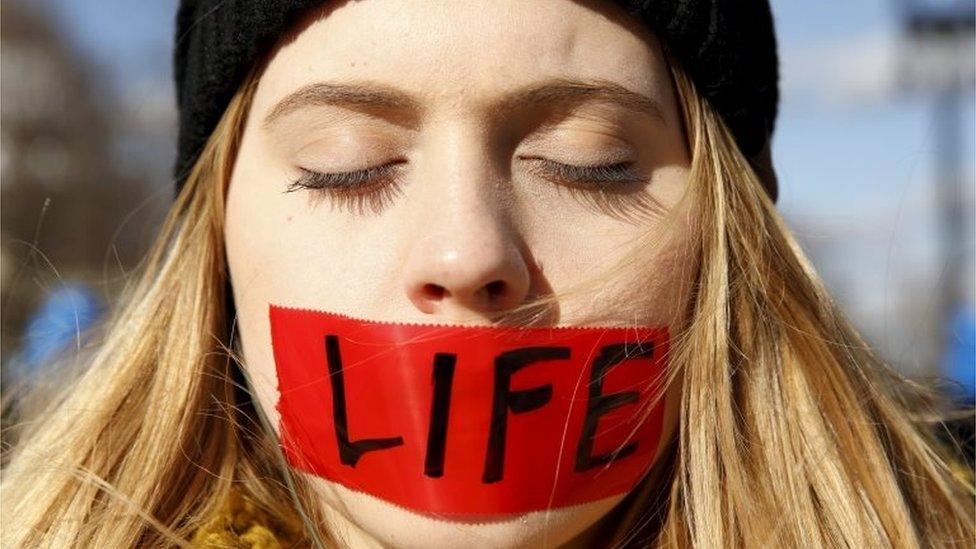
Anti-abortion activists say the law will protect women's health
It also focuses on a mandate within the law already gone into effect that requires doctors to have the ability to admit patients to hospitals within 30 miles (50km) of their clinic.
Opponents to the law say it would leave just 10 abortion clinics in Texas, making it harder for women there to obtain the procedure. But the law's proponents argue it is necessary to protect women's health.
Justices at the court must decide whether such restrictions on clinics hampers a woman's constitutional right to an abortion.

Read more on America's abortion debate

But after 90 minutes of arguments, they failed to show a unified front on the issue. In their questions, liberal judges voiced hostility towards the law while the conservatives appeared more sympathetic.
Justice Kennedy did not give a clear indication of which way he stood, however he did suggest sending the case back to the lower court to allow more evidence to be gathered on the law's impact.
A ruling is not expected until the end of June, although experts say this is likely to end in deadlock with a 4-4 split in the case. Without a majority verdict, the Texas law would be implemented but the court will not set a nationwide legal precedent.
Abortion is a highly disputed issue in the US, and is a hot topic in the presidential election, with all of the Republican candidates backing bans on the procedure.
The Supreme Court legalised abortion more than 40 years ago in a landmark ruling, but some states have since endeavoured to pass laws placing restrictions on a woman's ability to terminate a pregnancy.
- Published13 November 2015
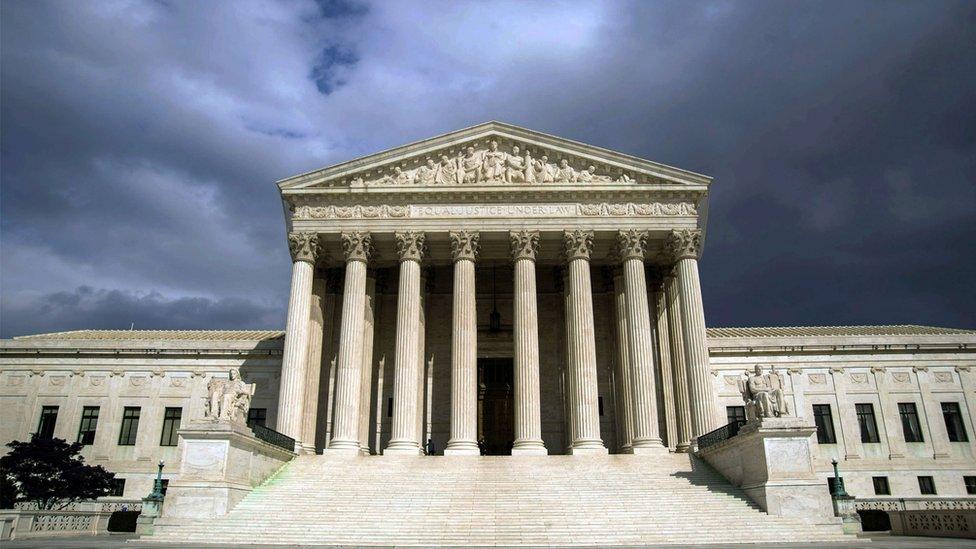
- Published25 October 2015
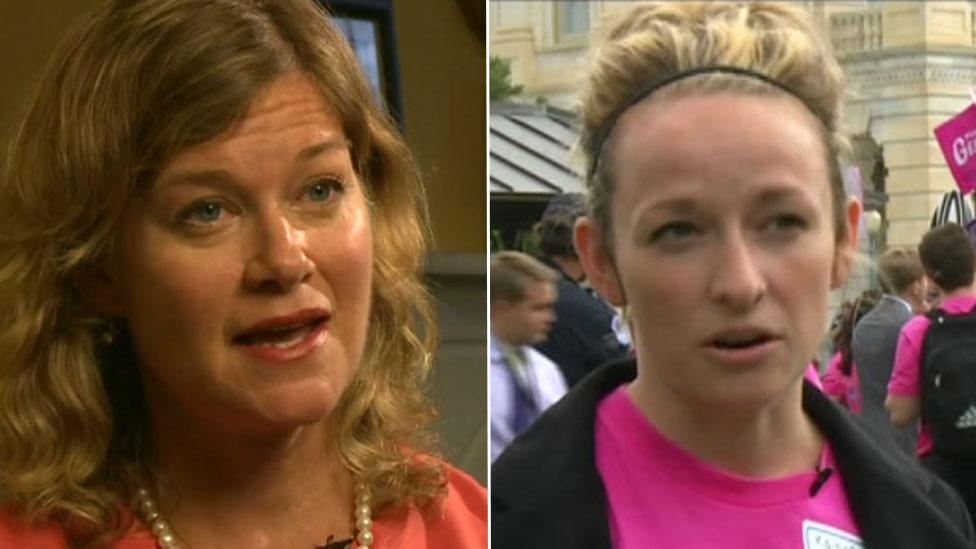
- Published25 October 2015
